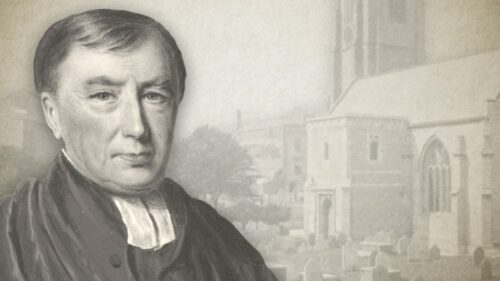
February 11—Morning Devotion
“Let mine outcasts dwell with thee, Moab; be thou a covert to them from the face of the spoiler.”—Isaiah 16:4
“When a man’s ways please the Lord, he maketh even his enemies to be at peace with him.” Moab was the sworn foe of Israel, but yet Moab shall be overruled to shelter and feed Israel. The world, like Moab, dislikes God’s people: but as God’s people must sojourn in the world, until the time comes for God to take them home, they shall be taken care of. “Let mine outcasts dwell with thee, Moab;” house them as travellers in an inn. See that they have a lodging. Let their bread be given, and their water sure. “They are poor; but they are my poor,” saith our God. “They are outcasts; but they are mine outcasts.” Oh! precious Jesus, I see thou wilt still own thy people. And wherefore is it, dearest Lord? Not for their worth, not for their deservings, not for their adherence to thee; but because thou hast loved them; because the Father hath given them to thee, and thou hast purchased their persons, redeemed them, and washed them, and made them thine. Grant, dearest Lord, that though we are constrained to dwell with Mesech, and to have our habitation among the tents of Kedar; though we “are made as the filth of the earth, and the offscouring of all things,” yet never, never may we forget our relationship to thee. Though outcasts, yet Jesus’s outcasts. Be thou, Lord, our hiding-place, our covert, in the midst of Moab; and so shall we be free from every spoiler; thou wilt be to us all we need—”rivers of water in a dry place, and as the shadow of a great rock in a weary land.”
Robert Hawker (1753-1827) was an Anglican (High-Calvinist) preacher who served as Vicar of Charles Church, Plymouth. John Hazelton wrote of him:
“The prominent features…in Robert Hawker's testimony…was the Person of Christ….Dr. Hawker delighted to speak of his Lord as "My most glorious Christ.” What anxious heart but finds at times in the perusal of the doctor's writings a measure of relief, a softening, and a mellowing? an almost imperceptible yet secret and constraining power in leading out of self and off from the misery and bondage of the flesh into a contemplation of the Person and preciousness of Christ as "the chiefest among ten thousand and the altogether lovely." Christ and Him crucified was emphatically the burden of his song and the keynote of his ministry. He preached his last sermon in Charles Church on March 18th, 1827, and on April 6th he died, after being six years curate and forty-three years vicar of the parish. On the last day of his life he repeated a part of Ephesians 1, from the 6th to the 12th verses, and as he proceeded he enlarged on the verses, but dwelt more fully on these words: "To the praise of His glory Who first trusted in Christ." He paused and asked, "Who first trusted in Christ?" And then made this answer: "It was God the Father Who first trusted in Christ."
Robert Hawker on the Biblical Covenants (Complete)
Robert Hawker's Poor Man's Morning Portions





